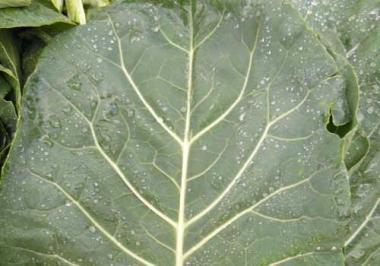There has been quite a lot of talk about health care reform. Now the ugly truth about what is actually making us sick is lumbering into view.
Author and food oracle Michael Pollan recently stated, "The American way of eating has become the elephant in the room in the debate over health care. The president has made a few notable allusions to it, and, by planting her vegetable garden on the South Lawn, Michelle Obama has tried to focus our attention on it. Just last month, Mr. Obama talked about putting a farmers' market in front of the White House, and building new distribution networks to connect local farmers to public schools so that student lunches might offer more fresh produce and fewer Tater Tots."
You may say, "but I love Tater Tots," or "but I love Lucky Charms. " But according to Pollan, processed foods are turning us into a nation of Little Debbie snack cakes. Pollan keeps a Twinkie on his desk as an object lesson. It is over 10 years old and still squishy.
At farmers' markets, the food sold is usually something to be reckoned with. You can't just take a recently plucked radish and eat it whole like a snack. That might be why the president is advocating a Farmers' Market out on Pennsylvania Avenue. It is an object lesson.
In Holyoke last week, at the war memorial, bunches of vegetables still wet from the farm were being stuffed into bags. By nine a.m. people started coming in to pick up their farm shares in the auditorium, where tables were set up with almost two dozen bags overflowing with greens.
"Oh, collards?" said a man, picking up his share. "These will take some cooking…" Dan Fitzgerald is a volunteer at the Holyoke Council on Aging. He is a former professor at Holyoke Community College and will bring the food to a man who is unable to leave his apartment.? Others were there to pick up bags for themselves.
As the room began to fill up and people peered into bags containing lettuce, beets, collards, kale and onions, a lively discussion began about collards vis-a-vis their smell, their history and their toughness. It was decided that the best way to go would be either to cook them fast by cutting them up and frying them or to cook them slowly with ham or bacon to create a gravy.
"They cook them to death down South," said one woman. "That's what I do." "That's what my mother did," said another. "What is this?" said a man holding up a massive kale leaf.
Senior Farm Share is a CISA (Community Involved in Sustaining Agriculture)-backed program that provides food from area farms all summer long to seniors in need. The Holyoke Council on Aging is one of 12 different locations where farms are dropping off crates of veggies once a week, but this may be the end of the line.
"Without this Senior FarmShare program, they'd just be getting canned goods," says Kathy Bower, who heads up the Council in Holyoke. "It has been very popular."
State funding has been steadily cut over the last few years for Senior FarmShare. Now CISA is raising the money on its own to fund the program. Previously it was providing matching funds and supplementing state support. If it cannot raise the money, not only are seniors holding an empty sustainable bag, so are the 12 farms distributing the food. CISA's impact on farms and the people they feed is palpable. Since its inception in the '90s, the number of farmers' markets in the Valley has grown from a very few to over 30.
CISA's Executive Director, Phil Korman, says that the organization will be accepting donations for the program over the next several weeks and during Eat the View, a fundraiser that will be held October 2 in Northampton at the Three County Fairgrounds.
"We're trying to raise $25,000 to insure the program will happen in calendar year 2010," says Korman. "That amount is in the ballpark of what it costs to do what we're doing now. If we can raise that much, we can keep it going until the state comes in with more money."
Our community, with its fertile soil and farmers' markets for all, is out in front on the food front. Man cannot live on Tater Tots alone.
Recipe of the Week: Collard Greens and Kale
What to Put In
1 large bunch collard greens, about 1 to 1 1/2 pounds
1 large bunch kale, about 1 to 1 1/2 pounds
3 tablespoons olive oil
6 cloves garlic, minced
1/2 teaspoon salt
1/2 teaspoon freshly ground pepper
juice of 1/2 lemon
chopped hot pepper, optional
How to Cook It
Rinse collard greens and kale well in a large bowl of cold water. Drain and cut off tough stems. Cut leaves into 1/4-inch strips. You should have about 8 packed cups.
In a well-seasoned heavy skillet or wok, heat the olive oil over medium-high heat. Add the garlic and cook, stirring, 30 seconds. Add half the collard greens and cook, stirring, for about 30 seconds. Add half the kale and cook, stirring, for about 1 minute, until it begins to soften. Add the remaining greens and cook, stirring constantly, for about 10 minutes, until the greens are tender. Season with the salt, pepper and lemon juice, and a few drops of hot pepper sauce, if desired. Serves 4.



